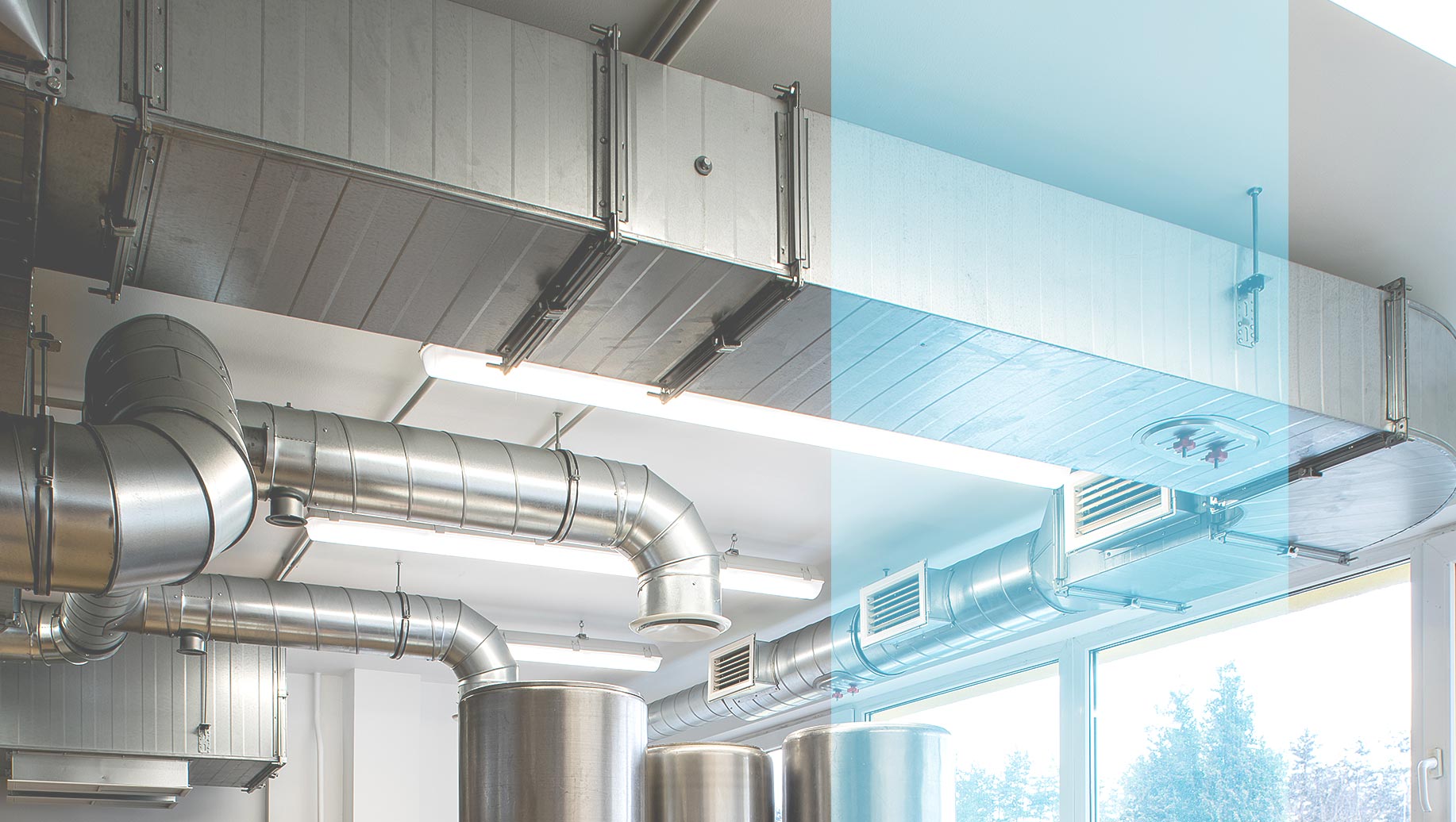Air and Gas Treatment
Nowadays, breathing clean air is one of the most vital things. According to the WHO, 4.2 million deaths every year occur as a result of exposure to outdoor air pollution. Ceycarb offers a wide range of products in its CEVC-Series to meet stringent emission control regulations by treating contaminants at air emission sources efficiently and economically.

Indoor air treatment in commercial places, airports, railway stations, healthcare places, education institutes, museums, libraries, factory premises, etc. Ceycarb offers CEVC -Series and tailor-made products for OEM manufacturers who provide products and services for such indoor air treatment applications.
These products are capable of absorbing:
- Nuisance odor
- Organic and inorganic contaminants
- Off-gases from printers, paintings, and photocopy machines
- H2S, SO2, and other harmful gases
- Exhaust fumes from machines, generators, and vehicles – These acidic gases are harmful to people, books, and paintings
- Odor and toxin generation in cooking – Kitchen hood applications

Indoor air treatment in special places like data centers, control rooms, document protecting rooms, and centralized power systems need to have special care. In particular, acidic and corrosive gases like SO2, H2S, and VOC have to be removed for the protection of such areas. Ceycarb offers a wide range of products for this air treatment application, including tailor-made products.
Odor nuisance in wastewater treatment plants has become a major environmental issue with the increase in population density, public demand, and increase in the number of contaminants in wastewater. The gases which cause Odor are H2S, Mercaptans, TVOC (Toluene, Benzene, Xylene), SO2, Ammonia (NH3), etc. Mainly, Hydrogen Sulfide (H2S) - which contributes to the rotten egg smell and causes a wide range of health effects - can even lead up to death when someone is exposed to high concentrations. Further, these gases are very corrosive and corrode pumps, fans, pipes, and other equipment.
Ceycarb offers a special series of products for removing such gases, eliminating health hazards as well as better use of the plant and equipment. As the products are with normal grades, impregnated grades, and advanced catalytic grades, customers can have a wide variety of choices for products. Especially, the catalytic activated products with an H2S breakthrough capacity of 0.3g/cc give extremely efficient and economical performance increasing the life span of the adsorbers, thus the downtime in the wastewater treatment plants.
Biogas is one of the most interesting and increasing industries nowadays because it uses waste in the production process. While biogas itself is a sustainable resource and is thus an important part of clean energy generation, its production process can result in toxic by-products such as Hydrogen Sulfide (H2S) and VOCs such as siloxanes, pinene, and limonene that need to be removed before the fuel can be safely used. Such compounds, due to their corrosive nature, can damage the catalysts used in production as well as compromise the stability of the plant, making their removal even more important.
Ceycarb's activated carbon solutions come in useful here to safeguard the catalysts, as well as the plant itself, from corrosion caused by these impurities, safely eliminating them to ensure long-term output and higher yields.
Ceycarb provides standard, impregnated, and advanced catalytic products with 0.3 g/cc H2S breakthrough capacity to treat such gases, assuring that the treated gas may be utilized in energy generation or fed into the natural gas grid.
Gaseous emissions are not restricted to atmospheric disposal; contaminated air can seep into the ground, polluting the soil bed and posing further concerns in terms of environmental deterioration and building integrity. Treatment of these gases is very important because of the toxicity and ignitability of volatile organic compounds (VOC) such as siloxanes present in these gases. In such cases, the air is suctioned out of the soil and then run through an activated carbon filtration that uses either conventional adsorption or solvent recovery, depending on the type of contaminants.
Ceycarb helps in providing its knowledge and a range of solutions to help with the treatment of such pollutants.
The production of natural gas also results in the formation of byproducts such as Hydrogen Sulfide and mercury, both of which are extremely dangerous to humans and the environment. These byproducts are also known to damage the catalysts used in production and corrode machinery downstream unless they are maintained at controlled levels, thus affecting output yields and reducing process efficiency.
With tailor-made activated carbon products, Ceycarb keeps your activities well within safety limitations. These include alkali-salt-impregnated activated carbon products and well-advanced catalytic products with 0.3g/cc H2S breakthrough capacity, for H2S and mercaptan removal and Sulphur impregnated products for mercury removal, in a fixed bed adsorption method that can eliminate such dangerous contaminants to allow continued operational efficiency.
Flue gas from waste incineration plants includes trace levels of a variety of pollutants, including heavy metals and other poisons such as mercury and dioxins. Despite their low concentration, they can cause considerable harm to health and the environment if not fully handled, which is why rigorous emissions rules exist to guarantee they are removed before any waste gas is disseminated.
This demands the use of carefully treated powdered activated carbon, which increases the surface area of contact to achieve up to 99 % removal effectiveness. Ceycarb's purification materials may meet this need by providing tailored solutions to eliminate contaminants at tiny levels, whether by the direct dosage or granular fixed-bed filtering processes.
Pulp and paper mills commonly deal with hydrogen Sulfide emissions from the production process. Not only is this acidic byproduct extremely toxic and harmful to humans, but it is also highly corrosive and can ruin equipment at the processing plant unless concentration levels are kept within a manageable threshold. Due to this, an efficient purification system is a must in order to avoid constant and expensive replacement of process and control equipment.
The solution Ceycarb can provide here is through activated carbon, ideally treated with alkali salts to neutralize the acidic content, to manage internal acid concentration even at high temperatures, allowing production to continue safely and efficiently.
Sulfur is commonly seen as a contaminant in industrial gaseous emissions, usually in the form of hydrogen sulfide (H2S), which is extremely flammable and highly toxic. Its corrosive nature means that it can cause damage even within an industrial system, causing piping and equipment to rust and leading to further leakage and contamination.
In addition to H2S, other sulfur species such as Carbonyl Sulfide (COS), mercaptans (RSH), organic Sulfides (RSR), Sox and NOx, HCl, and HF acid gases are available in gas streams.
Activated carbon has proven extremely effective at filtering out this harmful substance, especially when impregnated with metal compounds or alkali salts to neutralize acidity, and
Ceycarb offers a special series of products for removing such gases eliminating health hazards as well as better use of the plant and equipment. As the products are available in normal grades, impregnated grades, and advanced catalytic grades, customers can have a wide variety of choices of products. In particular, the catalytic activated products with an H2S breakthrough capacity of 0.3g/cc give extremely efficient and economical performance increasing the life span of the absorbers, thus the downtime in the wastewater treatment plants.
Industrial activities that need cleaning and bleaching, such as laundry and metal processing, frequently emit alkali gases such as sodium hydroxide or ammonium hydroxide, as well as other inorganic chemicals, which can harm human lungs if not filtered out throughout the process.
Maintaining this typically necessitates coating or treating other cleaning technologies used in the process with activated carbon to guarantee that such pollutants are absorbed and filtered out before they enter the environment. Ceycarb provides granulated or extruded activated carbon solutions that are further treated with other chemicals to ensure that no contaminants escape their grasp.
Industries that utilize dyes, inks, and paints, such as dry cleaners and printing presses, rely on solvents that degrade into vapor over time. Recovering these vaporized solvents from exhaust fumes benefits both the economy and the environment; hence, the adsorption method used to filter these compounds from exhaust fumes is frequently followed by desorption to recover these chemicals for later consumption.
Different sizes and grades of activated carbon filters can be employed depending on the kind of solvent to be extracted, and Ceycarb can offer the appropriate product to guarantee your operations are both environmentally and economically sustainable.


